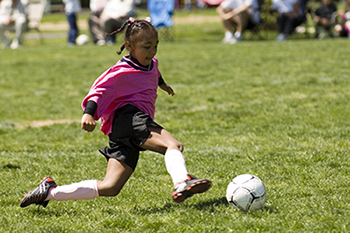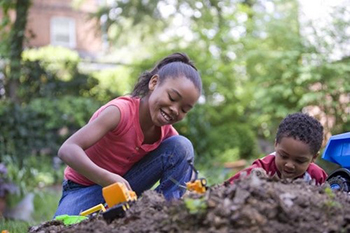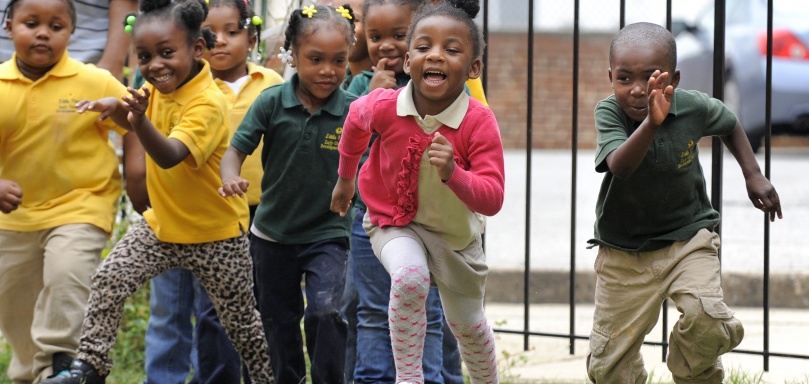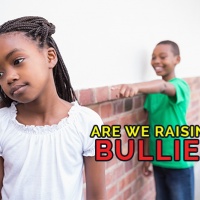Hop scotch (suwe), double dutch (Skipping/jump rope), Ludo, (snake) chutes and ladder, 10/10 (ten ten), hide & seek (bojuboju), fire on the mountain, mancala (ayo) etc. are some of the games we played as children. Play time was always fun, we looked forward to going to the field! While at play we had pure and sincere appraisals. We chose team members strictly on their true strengths, we accepted criticisms and worked to improve. Nobody in my generation will deny the importance of ‘PLAY’ in our lives.
Gradually, society is moving towards raising mechanized children. We ‘ship’ them off to schools at a very early age and boast of how ‘well’ they are doing academically.
The benefits of play cannot be overemphasized. Actually play may very well be the key to finding the leanings of a child. A careful observation will point out the strong traits of the child and the areas that need strengthening. However, we are too scared to allow certain types of PLAY; being overly protective as parents?
 Children have the right to relax and play, and to join in a wide range of cultural, artistic and other recreational activities…
Children have the right to relax and play, and to join in a wide range of cultural, artistic and other recreational activities… Article 31(Leisure, Play and Culture) of the United Nations convention
PLAY can either be structured or unstructured. Much like academic assessment, structured PLAY may be used to strengthen areas needing development which may be thrown up at play. Unstructured PLAY are instantaneous, more reflex based and tend to push children to the limits as they tend to deal with many unwritten and changing rules. Emotional outbursts, personality clashes, interpersonal skills, adrenalin rush and control are some of the features of unstructured PLAY. While structured PLAY tend to build ability to abide by rules, timing, mind exercise and wit building, strategic planning and calculated moves.
Types of PLAY can range from Solitary, Onlooker, Unoccupied, Parallel, Associative, Competitive, Constructive, Physical, and Dramatic or Fantasy. There’s no straight line progression from one type of PLAY to another. You’ll find that children engage in these PLAY according to their personality type and environment. Each of these types of PLAY lays a block in the development of your child.
Whichever form of PLAY, children develop certain skillsets like Communication, self-expression, Emotional balance and wellbeing, attachment and empathy, personal strengths, Interpersonal skills etc. Indeed, PLAY help develop the three domains of learning i.e. the thinking, the feelings and emotions and the physical body movement. It is then right to say that PLAY aids education or education is incomplete without PLAY. The playground is as important as the classroom as teachable moments can be seized to drive home a point or two. Growing up, the break period was never complete without PLAY.

While the Physical education and some extra curricula activities take care of PLAY at school, it’s becoming increasingly disturbing to have children play with neighbors, as trust is on the decrease while the menace of child molestation is on the rise. However, the need for interaction between children should not be limited to school settings alone. Parents must find a way of reducing dependency on devices and Television. Parents should watch the children PLAY as this helps them discover who their children truly are. With the increased spate of kidnapping, it is understandable that parents be disturbed letting children free without supervision. There are parks springing up. Nature parks as well as play parks… and though we have to pay to use these facilities, it’s important to make some budget and time for it.
Attitudes to look out for and teach include
- Sharing- this word is not same as give. Children need to understand that when they share they still have a part left for their use…
- Taking turns- to have things immediately you want them is common with children. Teach impulse control with taking turns.
- Obeying rules- rules can be restricting we know, but you really don’t want to raise a freeloader. Play and game rules help instill discipline in children. Let children know that one does not win always.
- Teamwork- ability to work with a team improves individual prowess, trust and sportsmanship
- Negotiating-the ability to give in while also gaining some grounds is a strong trait to be learned, yes… every seeming problem or obstacle can be talked about. Children need to learn alternatives to violence.
Add these to all of the physical, cognitive and affective impart of play and you’ll be raising a CHAMPION!












Comments